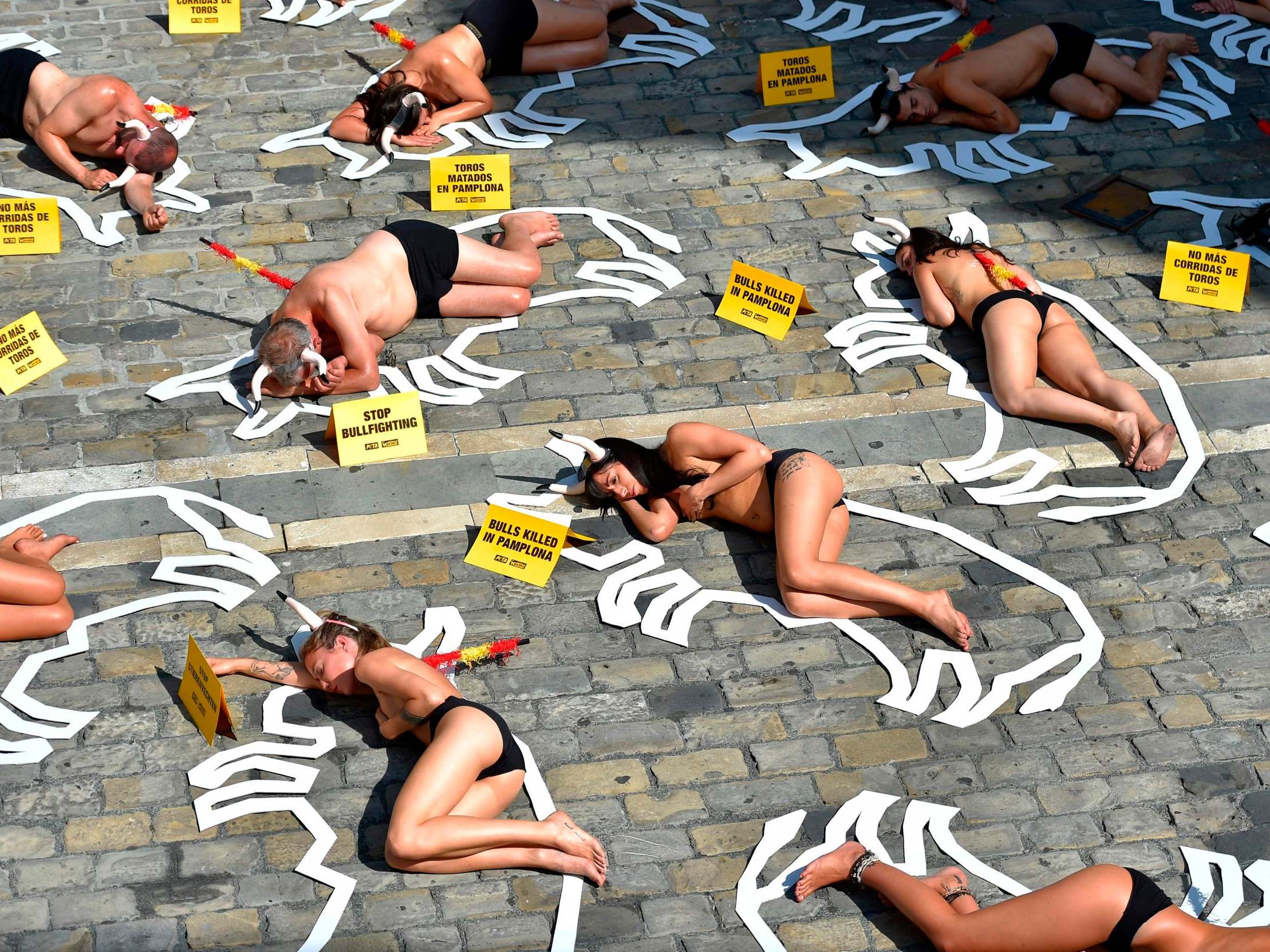Pamplona bull running festival kicks off amid animal rights protests and aftermath of ‘wolf pack’ case
PETA stages animal cruelty protest on eve of traditional festival

Your support helps us to tell the story
From reproductive rights to climate change to Big Tech, The Independent is on the ground when the story is developing. Whether it's investigating the financials of Elon Musk's pro-Trump PAC or producing our latest documentary, 'The A Word', which shines a light on the American women fighting for reproductive rights, we know how important it is to parse out the facts from the messaging.
At such a critical moment in US history, we need reporters on the ground. Your donation allows us to keep sending journalists to speak to both sides of the story.
The Independent is trusted by Americans across the entire political spectrum. And unlike many other quality news outlets, we choose not to lock Americans out of our reporting and analysis with paywalls. We believe quality journalism should be available to everyone, paid for by those who can afford it.
Your support makes all the difference.Traditional fireworks opened nine days of partying in Pamplona on Saturday as the “running of the bulls” festival kicked off with hopes of leaving behind the controversy of recent years.
A scandal around the “wolf pack” rape case, which occurred during the event in 2016, and frequent protests from animal rights activists have damaged the festival's reputation.
On the eve of this year’s event, dozens of semi-naked activists from AnimaNaturalis and Peta staged a performance simulating speared bulls lying dead on the city’s streets to protest alleged animal cruelty at the event.
“Supporting the bull runs is the same as supporting bullfighting, as the same bulls that run in the mornings will later be tortured and killed in the bullring,” Aida Gascon, spokesperson for AnimalNaturalis, said.
However, despite the protests, Pamplona’s official brass band played to an ecstatic crowd at the launch of the event, declaring “Long live San Fermin”, in reference to the saint honoured by the festival.
Pamplona’s population swells from nearly 200,000 residents to around a million visitors during the festival, which is important for sustaining the city’s economy.
In 2016, the city faced scrutiny after a gang rape of an 18-year-old woman at the festival received international attention, galvanizing Spain’s feminist movement.
Last month, Spain’s Supreme Court overruled a nine year sentence for sexual abuse from the lower courts that was seen as too lenient and caused outrage across the country.
The men were subsequently sentenced to 15 years in prison for rape in a widely publicised trial.
In response to the case, authorities in Pamplona have stepped up police surveillance and set up information booths, mobile phone apps and 24-hour hotlines to allow for instant reporting of abuse cases.
However, old issues remain at the festival, which has long been accused of animal cruelty over its treatment of bulls.
Peta has called for bull running and bullfights to be removed from the festival.
“Young bulls who have had very little contact with humans are transported to Pamplona on a long and stressful journey,” the organisation wrote in a recent petition.
“The festival organisers confine them to a small pen for several days. Then, they release them into a noisy, chaotic mob of people – mostly tourists – who chase the terrified animals through the narrow streets of the city.”
At least 48 bulls are killed each year during the festival, the organisation said.
However, bullfights are protected under the Spanish Constitution as part of the country's cultural heritage.
Agencies contributed to this report
Join our commenting forum
Join thought-provoking conversations, follow other Independent readers and see their replies
0Comments